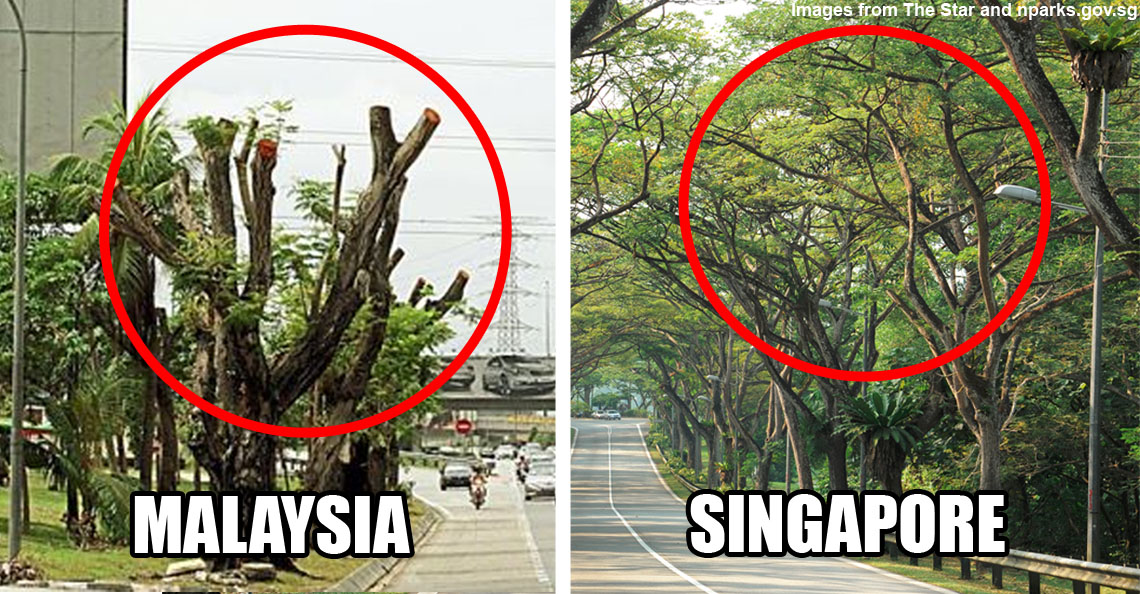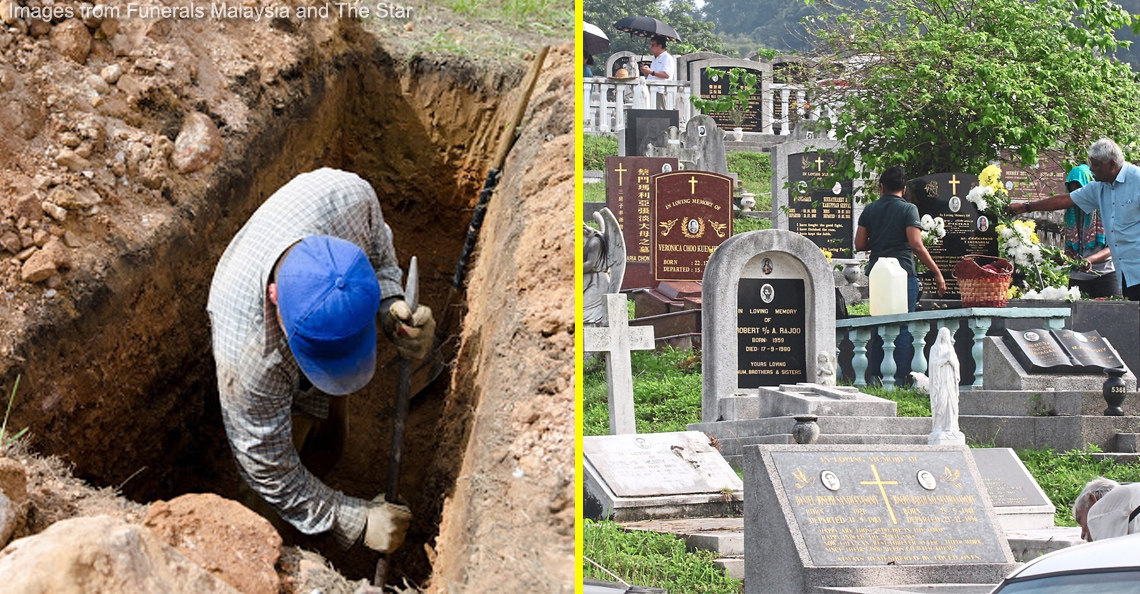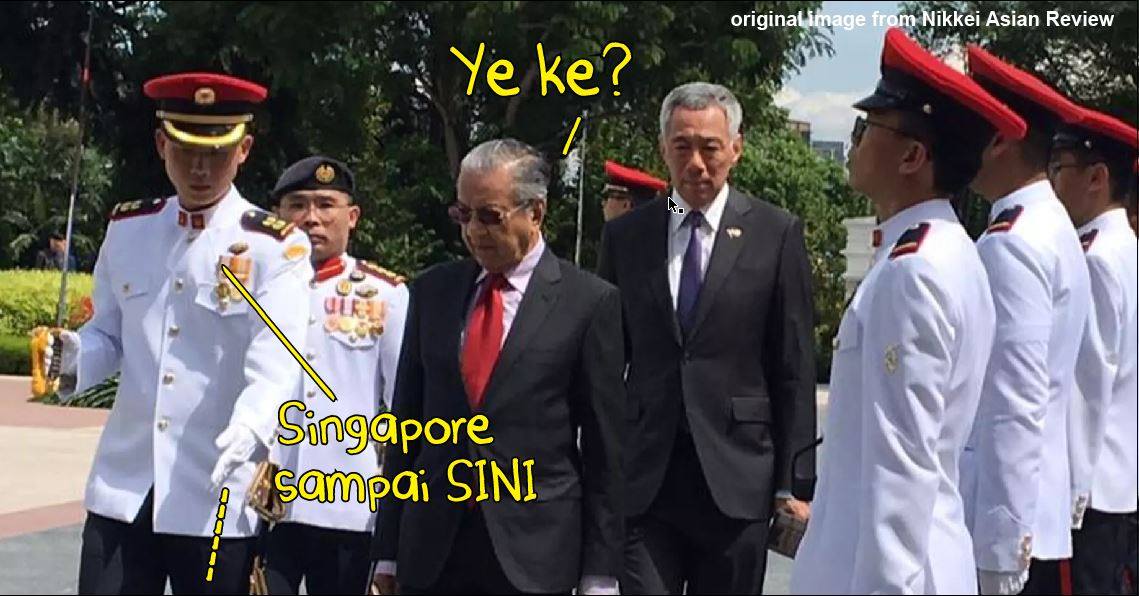Will the Selangor & KL plastic bag ban work? We look at other countries
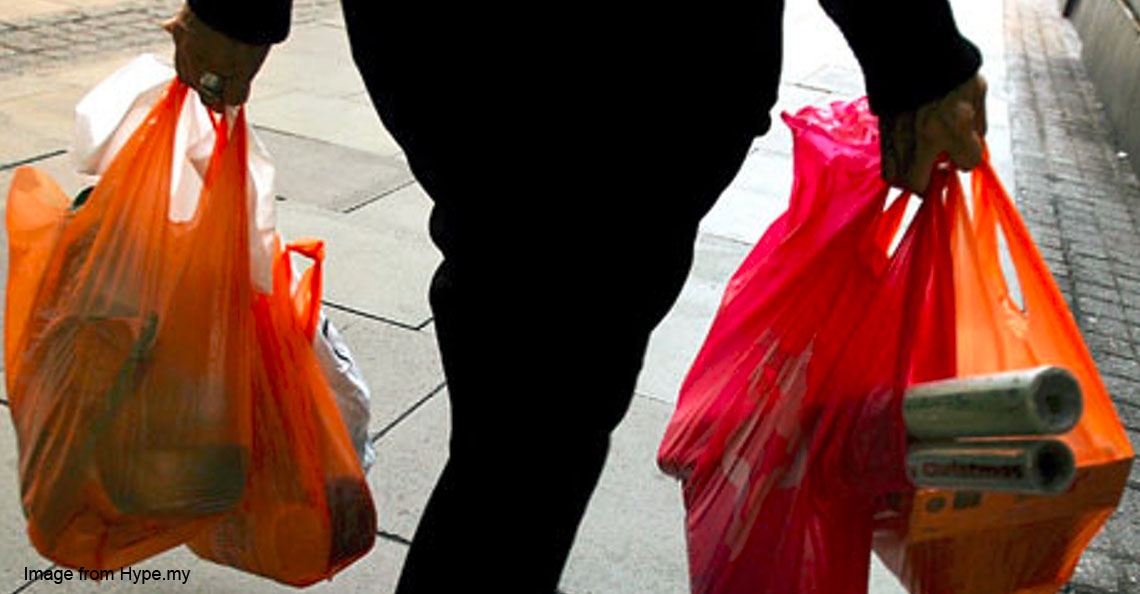
- 885Shares
- Facebook801
- Twitter7
- Email36
- WhatsApp41
YAYY, new year, time to make resolutions! The whole state of Selangor also made a new resolution, or should we say a regulation. Starting 1 Jan 2017, plastic bags and polystyrene food containers are fully banned in Selangor and the Federal Territories. Perak and Johor will soon follow suit in June.
It started off with ‘No Plastic Bag’ Saturdays in 2010, so the rakyat kinda had time to prepare for what’s to come. So now, ‘No Plastic Bag Saturday’ is ‘No Plastic Bag Errrday’. However, people can still get plastic bags if they’re willing fork out 20 sen, just like before.
Some people weren’t happy with the move, saying customers end up having to pay more (have to buy their own rubbish bags, whereas previously they could use the ones they got from shops). Others just said it was super mafan to bring along so many of their own reusable bags. And then some people said just follow la since it’s the law. But some others were glad to follow to help save the environment and all that.
What about other countries implementing this rule? How have they been doing it and is it effective?
Other countries banned already! So how’s it working out for them?
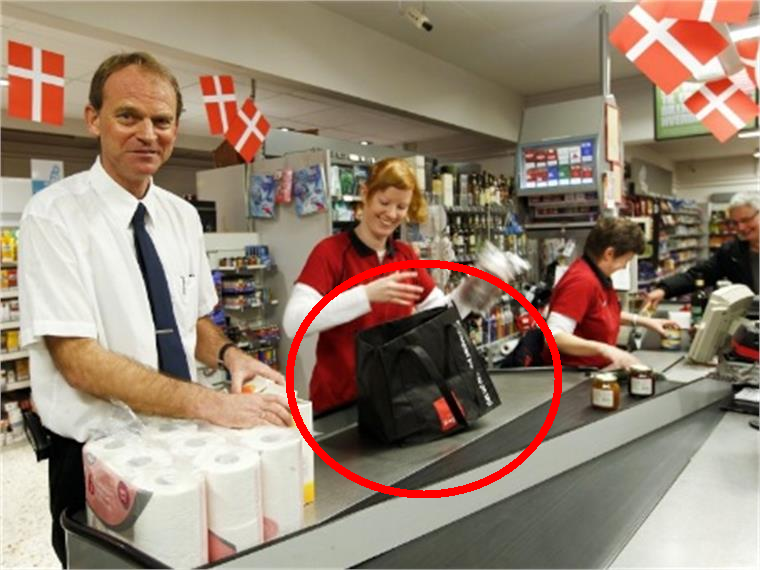
Malaysia is relatively new to the ‘ban plastic bags’ movement, because for one we started late (compared to some other countries) and because the ban is only being implemented in Penang, Malacca, Selangor, not nationwide. But a few other countries dang pro aldy. So has it been effective for those countries? Let’s see…
Denmark
Denmark is the grandpappy of ‘no plastic bag’ campaigns coz they’re the first to impose a tax on plastic bags in 1993 (some sources say 94). In Denmark, plastic bags are only taxed if they have capacity to carry at least 5 liters (around the size of a big Spritzer water tong) and they can be replaced with cloth bags, carrier nets and the like, whereas those super strong plastic bags are not covered by the tax. The tax on plastic bags are currently at €2.9 (RM13.56) per kg. When they started in 1993, it was €2.6 per kg, then revised to the current rate in 1998, which stuck ever since.
Average Danish consumer pay up to €0.27-0.47 (RM1.26-RM2.20) per bag. Fuhhh, mahal giler, compared to us, we only pay 20 sen per bag. Actually their tax has been quite effective, especially in supermarkets, although clothing and similar shops still offer plastic bags to customers for free (shops willingly absorb the tax).
Since its introduction, usage of plastic bags has been HALVED from around 800 million bags to 400 million bags – approx. 80 bags per person annually. Denmark is among the six to seven European countries consuming FEWEST plastic carrier bags annually.
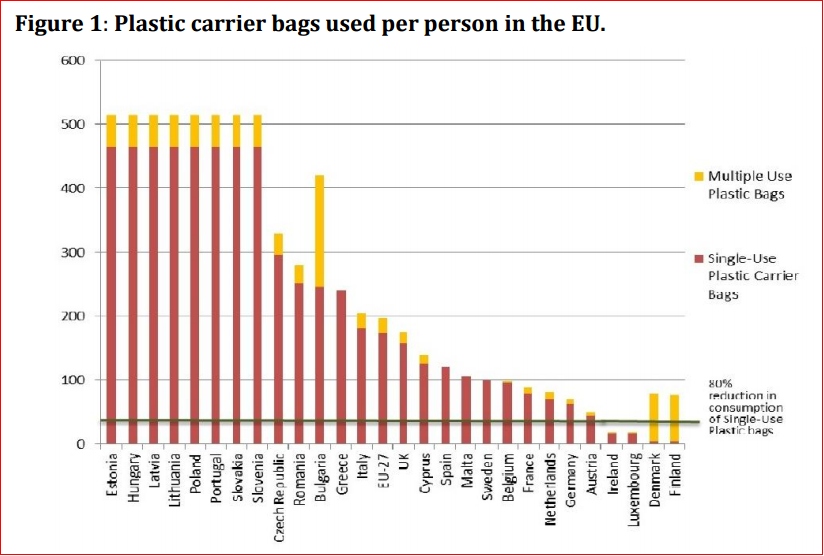
China
China, which is not usually known for its environmental concerns began limiting the use of plastic bags in the 1990s and by 2008, made it into a law, in conjunction with the Olympic Games. For them it was declaring a war on “white pollution” which is caused by plastic bags choking its cities, farms and waterways. The ban is imposed (both usage and manufacturing) on the thinnest bags that are less than 0.025 millimeters thick, but a tax is imposed for thicker ones.
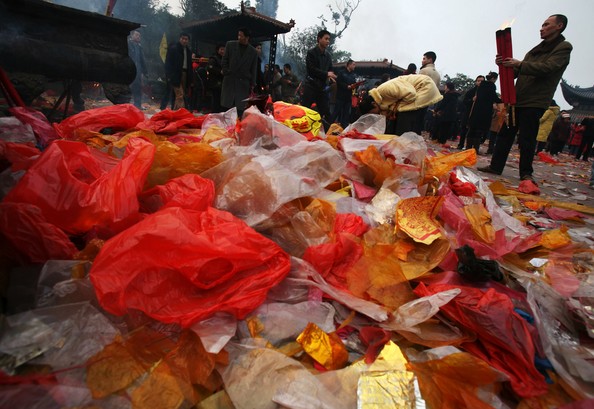
Even though the majority of merchants and consumers reportedly welcomed the ban, compliance is not very good because plastic bags are still being used, even in large supermarkets according to a report. However, the Chinese government reported a 66% drop in usage – that’s 40 million plastic bags, saving 1.6 million tons of petroleum (used to make plastic bags).
Bangladesh
And even Bangladesh has banned it in 2002! It was their third attempt to do so, but they had no choice because floods from 1988 to 1998 caused by littered plastic bags submerged two-thirds of the country in water!! Previously, 9.3 million plastic bags used to be dumped in Dhaka city every day, with only 10-15% put in dustbins. The rest are left go into drainage and sewage lines. Bangladesh campaigned vigorously on sensitization and finally on banned the use of 20 micron (0.02mm) thick bags.
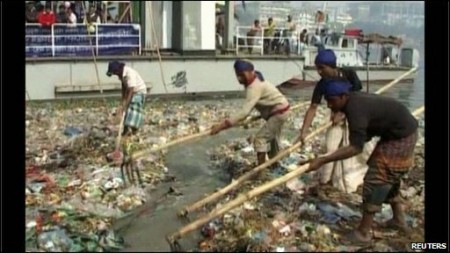
Singapore
Hehe, we’re sure ugaiz are itching to know whether Singapore is doing better than Malaysia right? From news reports we read, Singapore doesn’t have a ruling to ban or tax plastic bags at the moment. In fact the Government is AGAINST the idea because it’s not one of their areas of environmental concerns.
In all fairness, Singapore is extremely strict when it comes to littering, right? So they don’t have plastic pollution unlike other countries. And plastic pollution is one of the MAIN reasons why countries are beginning to ban plastic bags. Therefore we can understand why they don’t see the need to ban plastic bags for the time being. On the other hand, they do have a ruling for sustainable packaging waste management.. not the same as plastic bags, but also very relevant (plastic bottles, boxes, cartons, etc.).
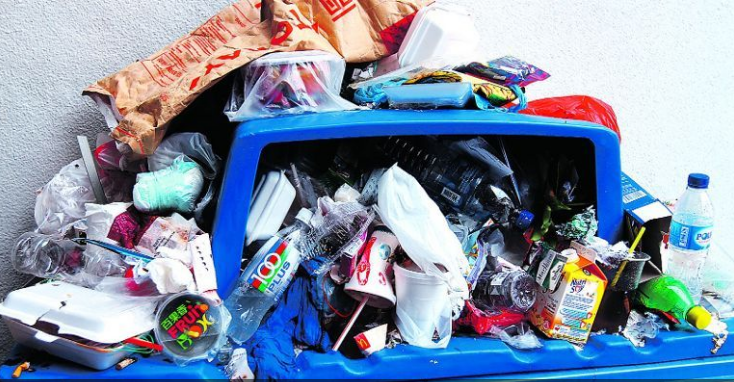
The Singapore government also said that if people want to do it, then they can go ahead la without having to set a law. Now the problem is, supermarkets and retailers are hesitant to make the first move, coz if their competitors still give plastic bags, then they will lose customers to their competitors. Aiyoyo, like that it will take longer for Singapore to stop using plastic bags than it would for the plastic bags to biodegrade. 😛
Ok well…Selangor is technically not banning plastic bags, but charging for them
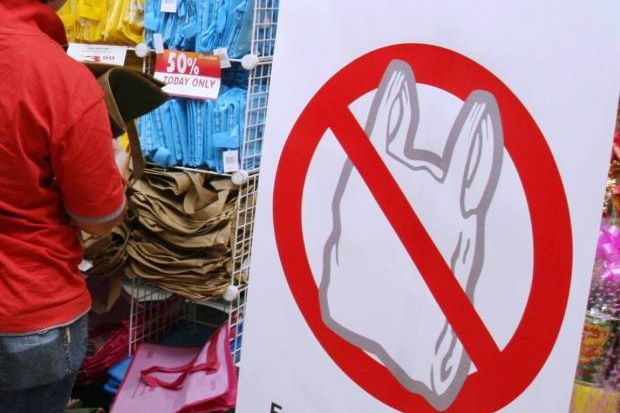
It’s interesting to see how countries have unique approaches to implementing this, like Denmark and Ireland’s tactic is to TAX the thin plastic bags. Bangladesh on the other hand has strictly BANNED thin plastic bags altogether. In Germany, the government decided not to implement a law, simply because their rakyat already way more advanced than the rest of the EU. Similar, BUT different from how the Singapore gomen buat “passive aggressive” with their rakyat and merchants.
We know that the word ‘ban’ is being thrown about, but technically you can still get a plastic bag if you pay 20 sen for it. Based on observations on other countries, it’s sounds like a good thing we’re charging a fee for bags rather than absolutely banning them. Here’s a thought question: If you were da gomen, which would you choose?
- Ban – which will piss off all your voters, but will reduce plastic bags almost entirely over several years, though there is the possibility of shops ignoring this law, so you’ll have to send officers to monitor them constantly.
- Tax – which will reduce plastic bags by 85-95%, but maintain the illusion of free choice and, as an added bonus, you get to collect tax money, which you can then use to fix other national problems. Best of all, people will consciously avoid using plastic bags if they have to pay for it.
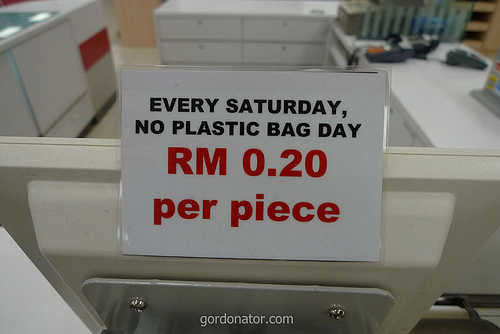
Some environmental activists suggested that 20 sen should be increased to RM1 in order for consumers to really think twice about using plastic bags. Where does the money go? Well, Commas PR (who are representing the Selangor Government for the current Bebas Plastik Campaign) emailed us saying that the 20 sen goes to retailers, just like all other products you purchase from them, and they are encouraged to channel it to charity and conservation efforts for the environment.
“The Selangor State Government hopes that by introducing this policy, the public will gradually opt for more sustainable and long-term options. If the public is willing to commit to this lifestyle change, this effort will eventually lead to a greener Selangor.” – Commas PR
Meanwhile, every 20 sen collected in Penang is chanelled to the state government’s ‘Partners Against Poverty’ campaign aimed at assisting poor families.
Though it’s slightly inconvenient to have to bring your own bag when you shop, it can’t compare to the inconvenience of long-term pollution of the environment. Nowadays, people are already aware of the damage plastic bags can cause to the environment. Can become a total poopstorm (for Bangladesh, literally). So this new year, jom let’s make this regulation our resolution! 😉
- 885Shares
- Facebook801
- Twitter7
- Email36
- WhatsApp41

